Coping with a mental illness or generally improving your mental health can take some time and effort. If you are unsure about your recovery, here are a few signs your mental health is improving and you’re going back to your normal self.
Living with a mental illness is challenging
Struggling with mental health issues can not only affect our thoughts, emotions, mood, and behavior, it can also affect our ability to function in our daily life, study, work, maintain relationships and care for ourselves.
When left unaddressed, psychological conditions can seriously affect our lives in the long run.
Research shows that good mental health allows us to experience a range of human emotions, identify our abilities, deal with daily stressors, work productively and contribute to our community.
It is also characterized by “the absence of mental disease,” explains a 2015 study. However, mental illness can alter our thinking, feelings & behaviors and cause distress and difficulty in functioning.
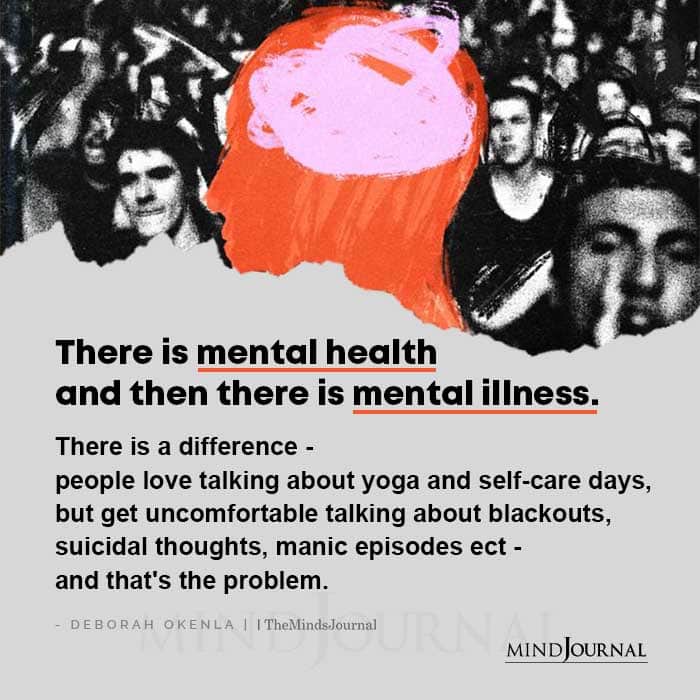
Unfortunately, almost all of us struggle with some mental health issues on a daily basis. There are different types of psychiatric disorders, like depression, anxiety disorder, obsessive-compulsive disorder and others, and some of these are mild, while some are severe.
“Individuals who have a mental illness don’t necessarily look like they are sick, especially if their illness is mild. Other individuals may show more explicit symptoms such as confusion, agitation, or withdrawal,” explains a research paper.
Regardless, therapy and self-help strategies can not only help you overcome mental illness, it can also help you improve your psychological well-being in general.
Related: 12 Mental Illness Symptoms You Should Never Ignore
Is your mental health getting better?
Whether you are coping with stress, anxiety, depression or any other mental illness or simply trying to be in a better and more positive mental space, it can take some time and effort to heal and recover.
However, as there is no specific way to measure how much you are healing, it can often be confusing and make you feel further stressed and anxious unnecessarily.
This can also affect the outcome of your treatment, self-care efforts and recovery progression. So how can you know if you are actually recovering mentally and emotionally?
Although it can be difficult to accurately understand if you are recovering from mental illness without professional diagnosis, there are some signs your mental health is improving finally.
Here are some common yet understated signs that indicate recovery, healing and signs your mental health is improving.
1. Less anger and irritability
Studies reveal that “Mood instability is common, and an important feature of several psychiatric disorders.” Coping with excessive stress, anxiety or depression can often lead to chronic bouts of irritability, mood swings and angry outbursts.
Being mentally unhealthy can make us emotionally unstable leading to unnecessary and extreme reactions, which can affect our social and personal relationships.
Moreover, mood swings associated with stress and depression can hinder our ability to think clearly, assess situations properly and respond appropriately.
However, if you find yourself in better control of your emotions, feel less irritable or angry, then it is surely a prominent sign of recovery. As you heal from your mental issues, you develop more patience, empathy and compassion and feel less triggered due to external factors.
You are more likely to respond rationally than to react aggressively. Now you feel more in control of your moods and feel more reasonable, welcoming & positive.
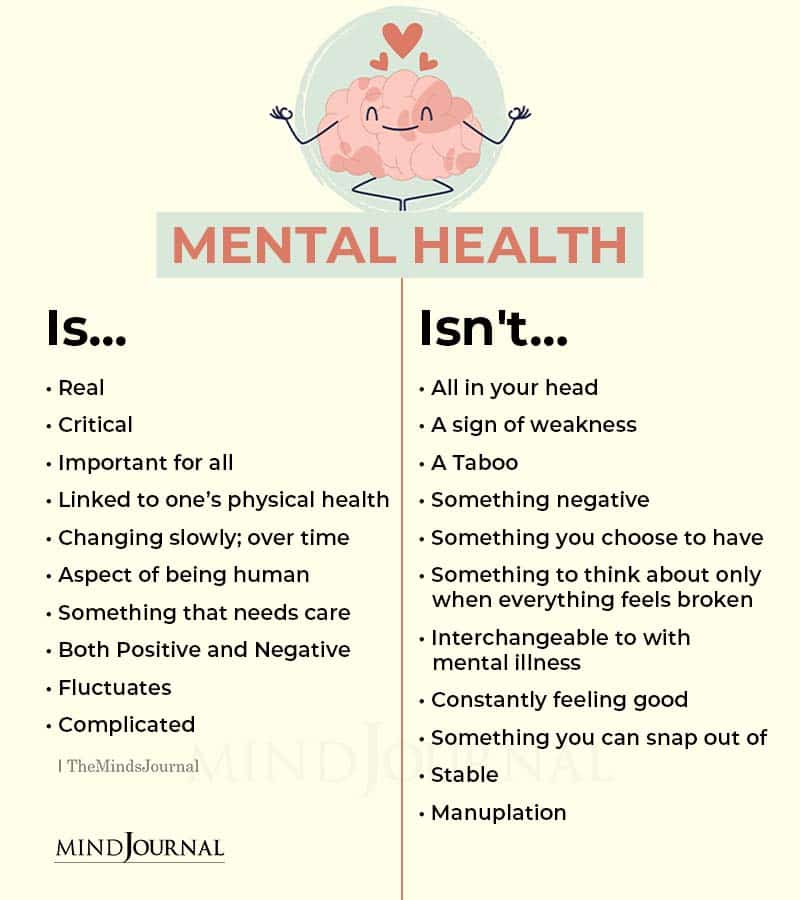
2. Feeling more interested in activities
One of the most important signs your mental health is improving is this right here.
When we are dealing with mental health issues, we often lack interest in different activities, whether it’s our professional work, household chores or fun activities, which we used to like earlier.
It makes it difficult for us to enjoy pleasurable activities as we are influenced by depressive moods and thoughts.
But once the recovery process begins, you start to enjoy everyday activities more. You find your job more meaningful, you love spending time with your family more, you love going on walks more often, you start to enjoy food again, you even enjoy chatting with neighbors while grocery shopping.
Finding activities, hobbies and passions is a sign of a positive mindset and an indication of recovery from mental illness and better mental health.
3. Functioning better in daily life
One 2005 study states that “Mental disorders affect several domains of daily functioning, with considerable limitations in personal and social life, but also with dramatic cutbacks in work productivity.”
People coping with excessive stress, anxiety or depression often experience functional impairment that can affect different aspects of their lives. But when you are on the road to recovery your ability to function and complete daily activities improves.
You find it easier to care about yourself, interacting with others, going to your work, doing household chores and even enjoy cooking. All these are signs of absence of mental illness and better mental health.
Related: 5 Mental Health Benefits of a Clean Home
4. More social interactions
Studies show that the quality, quantity & structure of our social network, along with the emotional appraisal of relationships, can have a significant impact on our mental health. Social isolation is a symptom and predictor of mental illness.
When we are mentally unhealthy, we tend to withdraw and isolate ourselves from others, even our loved ones. However, when we start taking better care of our mind, we start to finally open up to people once again.
So if you find socializing with others, attending social gatherings or simply talking to loved ones a positive and fulfilling experience, then it is a sign of better mental health.
5. Enjoying work
Research shows that being overly stressed can often lead to feeling burned out, empty, exhausted & unable to cope with work pressures.
Depression is the most common mental illness associated with work stress due to chronic feelings of being overworked, conflict with coworkers, deadlines, being under-challenged etc. Being a workaholic can also add to the injury.
As a result you take more casual leaves, your performance and productivity suffers and you think about putting down your resignation. But once you start to improve your mental health, whether through therapy, medications or coping strategies, you find your work purposeful and meaningful.
You enjoy going back to work, interacting with your coworkers and working with teams. Not only do you take charge of your work, but also your life.

6. Less stress
One of the major signs your mental health is improving is this.
Feeling overwhelmed, frustrated and stressed is a common predictor of mental health issues. Daily stressors are “increasingly recognized as important risk factors for mental health,” explains a 2015 study.
When feeling low, we feel inadequate, unable to cope and feel like the weight of the world is crashing down on our shoulders. But good mental health is marked by feeling relaxed and being in control of your thoughts, emotions, moods and behavior.
So if you feel less stressed or overwhelmed and ready to cope with life challenges in a positive way, then you are clearing the fog inside your mind and moving towards clear sunny weather.
7. Better sleep
There is strong evidence that sleep problems are a common symptom of mental illness. While insomnia, sleep deprivation or restriction can severely affect our cognitive functions, memory and mental well-being, excessive sleep, also known as hypersomnia, is also associated with mental health issues.
But when your sleep quality, pattern and schedule improves and you feel well rested after waking up, then it means your mental and emotional well-being is getting better. Research shows that improving sleep can actually lead to better mental health.
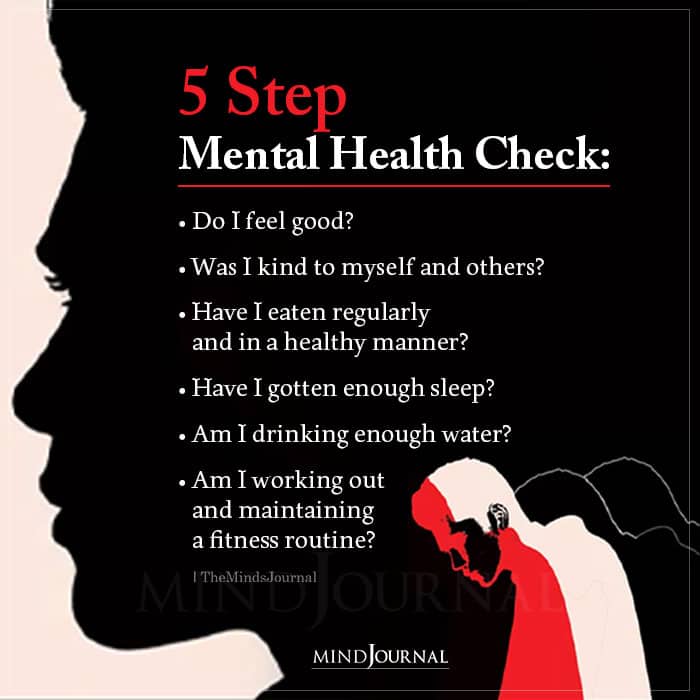
8. Appetite improves
Appetite and weight changes are one of the most common diagnostic markers in mental disorders, like major depressive disorder. Studies have found nutrition and mental health is related, where mental illness can lead to nutritional deficiencies.
However, when you stop overeating or undereating and focus more on following a nutritious diet, then it means you have started overcoming your mental health challenges and progressing towards better mental health.
If you were experiencing loss of appetite, then you will start finding food more enjoyable and appealing, while if you were overeating, you will be able to resist addictive foods and eat clean.
Related: 5 Ways Vitamins Are Beneficial For Mental Health
9. Positive self-image
Research indicates that low self-esteem is involved in a wide range of psychiatric conditions, such as anxiety disorders, depression, personality disorders and suicidal ideation. According to a 2003 study, “all psychiatric patients suffer some degree of lowered self-esteem.”
But when you stop feeling pathetic, terrible and worthless all the time, stop giving in to your negative thoughts, and develop a stronger sense of self worth, it shows that you are bringing more light and love into your life.
It is a clear sign that you are shifting gears from a negative setting to a more positive one. Studies show that self-esteem is closely linked to mental health and a high self-esteem leads to fewer symptoms of anxiety, depression and attention problems.

10. Relief of symptoms
One of the most important signs your mental health is improving.
You know all your hard work to boost your mental health is proving effective when the common symptoms of your mental illness finally start to improve. Although a proper diagnosis may be needed for an accurate assessment, you can feel the changes in your mind and heart.
You realize that therapy and medications are having a positive effect on you. You can feel that the new lifestyle changes and self-help strategies have started to work.
Now you don’t experience the symptoms as severely as you used to even a few weeks ago. You can better regulate your emotions and reactions. You don’t feel as drained or affected by your mental health problems any longer.
Related: Alternative Ways To Help Manage Your Mental Health
Other signs your mental health is improving
Apart from the telltale signs shared above, here are some other quick ways to identify how well you are progressing and reducing the symptoms of mental illness –
- Fewer episodes & lower relapses
- Improved emotional intelligence
- Better concentration
- Healthy libido or sex drive
- Higher energy levels
- Focus on setting & achieving goals
- Less emotional outbursts
- Stronger personal boundaries
- Greater self-confidence
- Better personal care and hygiene
- Engaging in positive behaviors
- Stronger & healthier relationships
Good mental health is the key to a good life
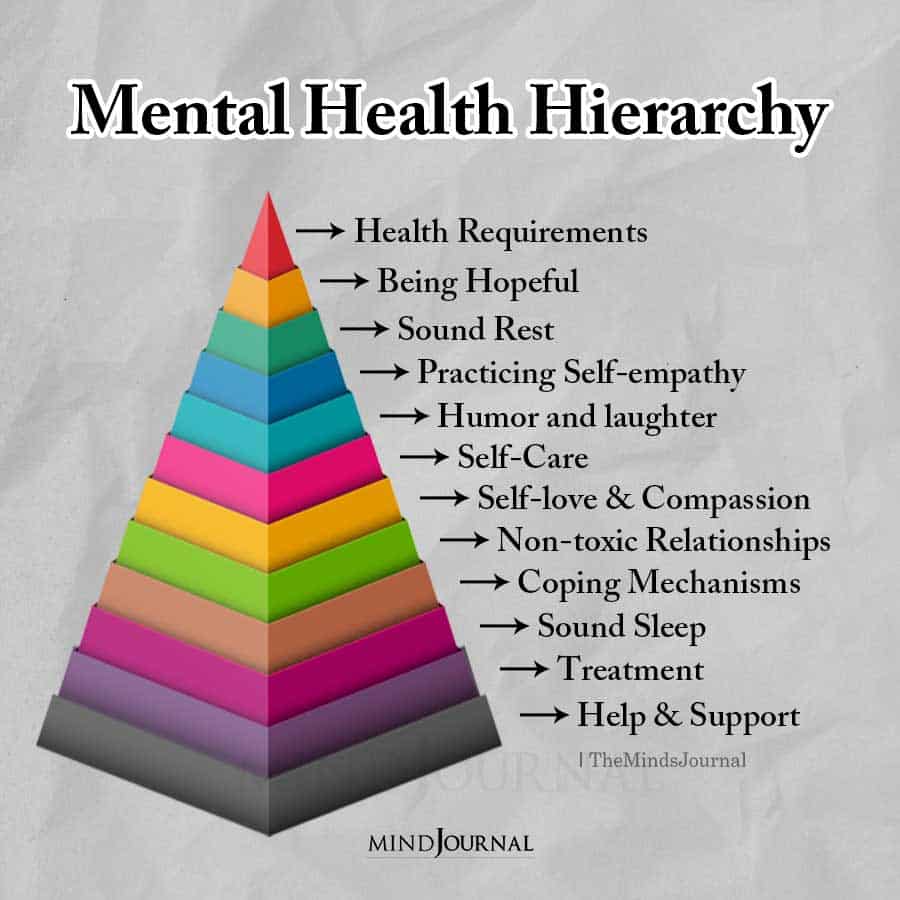
Absence of mental illness is one of the most fundamental signs of better mental health. However, there are many other subtle indications that help us identify positive mental health.
Being aware of these signs can help you understand how well your efforts are working and how much you have progressed.
It is also important that you stay in touch with a mental health professional to get an accurate medical diagnosis.
Identifying these signs can motivate you to stick to your treatment plan for better mental health and your self-help efforts so that you can fully recover from your psychological issues and help others live better as well.
Related: 5 Tell-Tale Signs You’re in Need of a Mental Health Check-up
Frequently Asked Questions:
What are the most common mental health disorders in youth?
As per the American College of Obstetricians and Gynecologists’ Committee on Adolescent Health Care, the most common mental health disorders in youth are – Anxiety disorder, Mood disorder, Attention deficit disorder, and Behavior disorder.
What are the 5 most common mental disorders?
As per National Institute for Health, the 5 most common mental disorders are – Panic disorder, Generalized Anxiety Disorder, Post-Traumatic Stress Disorder, Depression, and Obsessive-Compulsive Disorder.




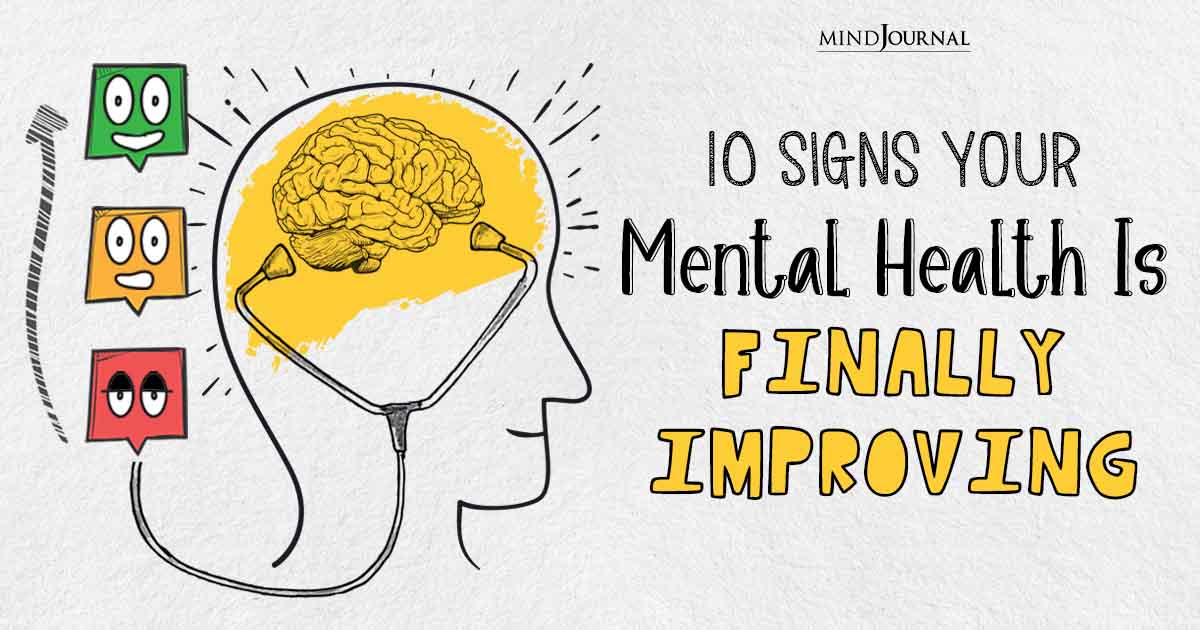







Leave a Reply